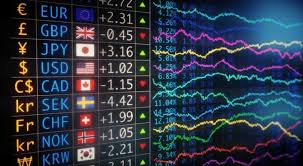
Is Forex Trading Halal or Haram? A Deep Dive into Islamic Finance
Forex trading, or foreign exchange trading, involves buying and selling currencies in a global marketplace. The forex market operates 24 hours a day and is known for its high liquidity and potential for profit. However, as this market continues to grow, a significant question arises for Muslim traders: is forex trading halal (permissible) or haram (forbidden) according to Islamic teachings? This article aims to delve into this complex topic, providing insights into the principles of Islamic finance and the varying opinions among scholars. For more information on trading strategies and platforms, you might find forex trading halal or haram https://trading-terminal.com/ helpful.
Understanding Halal and Haram in Islamic Finance
To determine if forex trading is halal or haram, it is essential first to understand the concepts of halal and haram. Halal refers to actions and practices permitted by Islamic law (Sharia), while haram denotes those that are forbidden. Islamic finance is grounded in several key principles, including:
- Prohibition of Riba: Riba, or interest, is strictly forbidden in Islam. Any transactions involving interest are considered haram.
- Gharar (Uncertainty): Islamic finance discourages excessive uncertainty and speculation in transactions. Contracts must be clear and transparent.
- Ethical Investments: Investments should align with Islamic ethics and values, avoiding industries that contradict Sharia, such as alcohol, pork, or gambling.
Forex Trading: A Brief Overview
The forex market is the largest financial market globally, where currencies are traded in pairs (e.g., EUR/USD). Traders aim to make a profit by speculating on the price movements of these currency pairs. Unlike stock trading, no physical goods are exchanged; transactions are purely electronic. This unique nature of forex trading raises questions about its compliance with Islamic financial principles.
The Argument for Halal Forex Trading
Proponents who argue that forex trading can be halal often cite the following points:
- Absence of Riba: Forex trading itself does not involve interest. Traders buy and sell currencies for profit without the direct application of riba.
- Speculation vs. Gambling: While speculation is inherent in forex trading, it is not synonymous with gambling. Traders conduct research and analysis, applying strategies to make informed decisions.
- Permissible Partnerships: Some argue that certain forex trading practices, such as swap-free accounts, allow traders to engage in the market without violating Islamic norms.

Opinions of Scholars
The debate surrounding the permissibility of forex trading is ongoing, with scholars divided on the issue. Some take a more lenient view, while others adhere strictly to traditional interpretations of Islamic law.
Scholars Supporting Halal Forex Trading
Some scholars argue that forex trading can be halal if conducted correctly. They emphasize:
- The absence of interest charges in trading accounts.
- The need for transparency and adherence to ethical trading practices.
- The potential for profit through legitimate means rather than gambling.
Scholars Against Forex Trading
Conversely, other scholars argue that forex trading is haram due to several factors:
- Speculation: They view trading as a form of excessive speculation, which can lead to financial risk and instability.
- Lack of Tangible Assets: Critics argue that trading currencies does not involve owning tangible assets, thus violating Islamic principles of trade.
- Gharar: The high level of uncertainty in forex trading may render it haram according to Islamic finance rules.
Considerations for Muslim Traders
For Muslim traders considering entering the forex market, there are several key considerations to keep in mind:
- Research: Thoroughly investigate the broker and trading platform. Ensure they offer Islamic accounts that comply with Sharia standards.
- Strategy: Develop a clear trading strategy that emphasizes risk management and informed decision-making.
- Consultation: Seek guidance from knowledgeable scholars or financial advisors who specialize in Islamic finance to navigate the complexities of forex trading.
- Ethics: Stay conscious of the ethical implications of trading activities and ensure alignment with Islamic values.
Conclusion
In conclusion, the question of whether forex trading is halal or haram does not have a straightforward answer. Opinions vary among scholars based on interpretations of Islamic teachings and the principles of finance. For Muslim traders, it is vital to approach forex trading with caution, conduct thorough research, and seek expert advice when needed. Ultimately, understanding the underlying principles of Islamic finance will help guide informed decisions in the forex market.